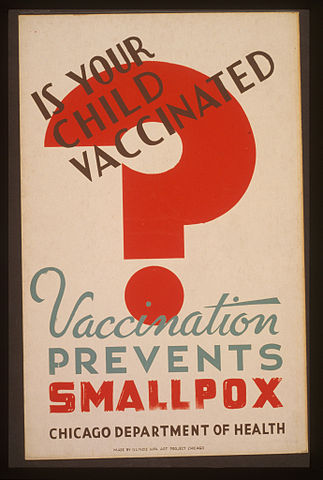Safety of Vaccines used for Routine Immunization of US Children: Systematic Review
 There has been a big controversy in the realm of primary care for the last several years after a British study linked childhood vaccines with autism. The study has since been retracted and a resulting investigation found that the study author, Dr. Andrew Wakefield, perpetrated an “elaborate fraud” and falsified data. Still parents continue to voice concerns regarding the safety of childhood immunizations and many continue to decline to vaccinate their children resulting in a resurgence of these diseases.
There has been a big controversy in the realm of primary care for the last several years after a British study linked childhood vaccines with autism. The study has since been retracted and a resulting investigation found that the study author, Dr. Andrew Wakefield, perpetrated an “elaborate fraud” and falsified data. Still parents continue to voice concerns regarding the safety of childhood immunizations and many continue to decline to vaccinate their children resulting in a resurgence of these diseases.
On July 1, 2014, the journal Pediatrics published a systematic review entitled “Safety of Vaccines used for Routine Immunization of US Children” (full text pdf is freely available online). The authors concluded, “We found evidence that some vaccines are associated with serious [adverse effects]; however, these events are extremely rare and must be weighed against the protective benefits that vaccines provide.”
The RAND Corporation published these additional key findings on their website:
- There are some risks associated with some childhood vaccinations, but overall the evidence shows that vaccines are very safe.
- There is strong evidence that the MMR (measles, mumps, and rubella) vaccine is not associated with autism in children.
- There is strong evidence that several common vaccines for children—MMR, DTaP (diphtheria, tetanus, and acellular pertussis), Td (tetanus-diphtheria), Hib (Haemophilus influenza type b), and hepatitis B—are not associated with childhood leukemia.
Maglione, M. A., Das, L., Raaen, L., Smith, A., Chari, R., Newberry, S., . . . Gidengil, C. (2014). Safety of vaccines used for routine immunization of US children: A systematic review. Pediatrics, doi:10.1542/peds.2014-1079.
